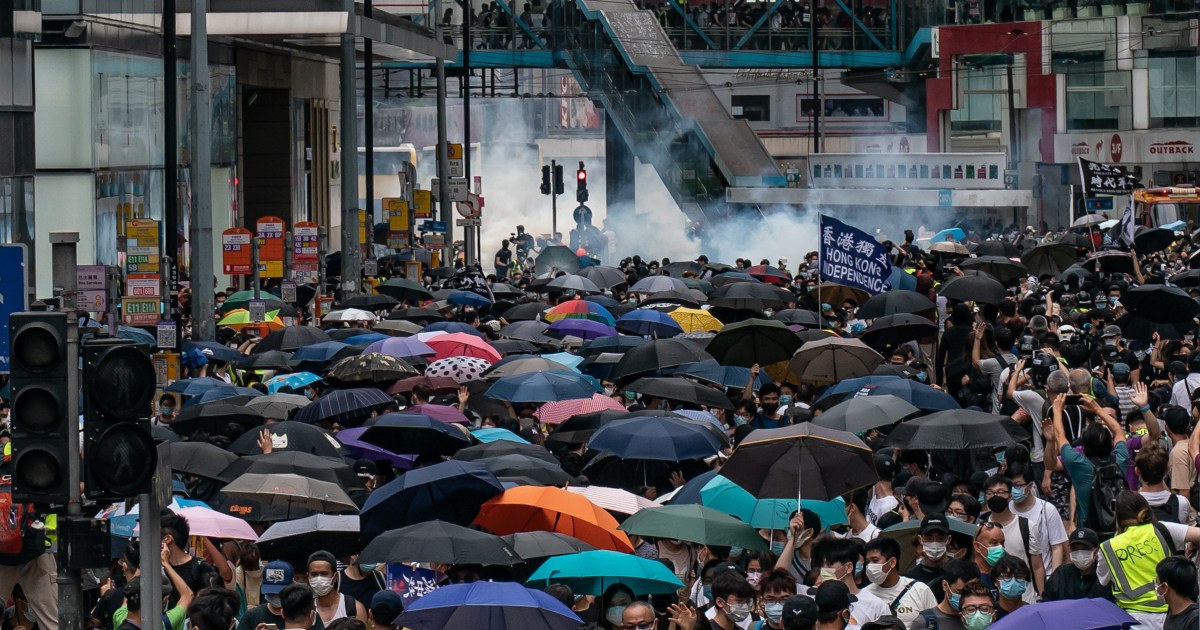China revealed on Saturday the details of its new national security legislation to be implemented in Hong Kong, paving the way for the biggest fundamental change in the city's situation since its return to rule China in 1997 after it was under British control.
According to the Xinhua news agency, Beijing said that a controversial bill prepared by the Chinese parliament includes the establishment of a new Hong Kong National Security Council to collect intelligence information and deal with crimes affecting national security.
The new draft also stipulated that Hong Kong Chief Executive Carrie Lam will chair the National Security Agency under the supervision of a central committee appointed by Beijing, as well as establish new police and prosecutors to ensure the implementation of the new law requirements, with the support of officials from China's central security and intelligence services.
The Chief Executive of Hong Kong can appoint specific judges to consider national security cases, a move that is likely to further concern some investors, diplomats and business leaders in Hong Kong as a global financial center.
The law also includes that national security activities will protect human rights, and will ensure freedom of expression and protest.
Justifications for Beijing
The Chinese authorities - which see the growing risks to their national security in the city - said the bill aims to counter separatist activities, censorship, anti-terrorism, and conspiracy with foreign powers in Hong Kong.
The bill comes after months of massive demonstrations in Hong Kong in 2019 against Beijing's pursuit of control of the city, and the protests were marked by violence and reinforced an opposition current of the Chinese authorities that had been marginalized in the past.
Critics of the bill fear that it will crush the freedoms that are essential to the international situation of Hong Kong, which has autonomy under the principle of "one country, two systems".
Undercut independence,
political activists in Hong Kong and Western governments fear that Beijing is seeking to undermine the city’s autonomy since its return to China, and the former British colony has enjoyed broad independence, freedom of expression and an independent judiciary since its return to China.
On Friday, US Secretary of State Mike Pompeo said the Communist Party of China was a "rogue actor" because he declared the end of freedom in Hong Kong "in violation of its international obligations." Before that, US President Donald Trump last month described the latest Chinese move in the city as a "tragedy to the world" .

